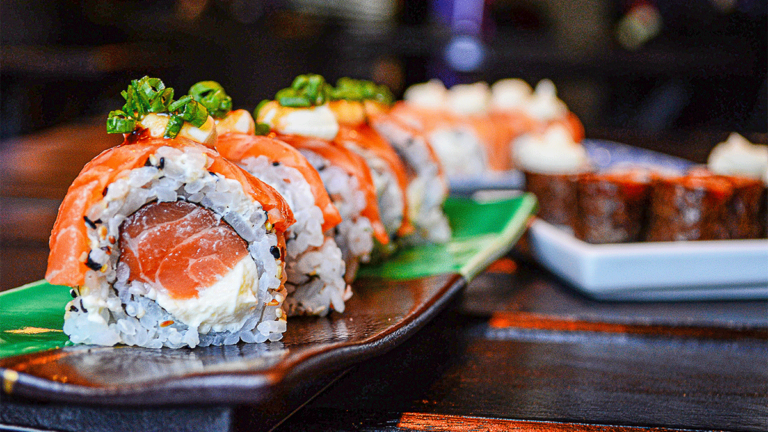Eating Sushi While at War

Despite the challenges posed by Russia’s invasion, Ukraine’s economy has shown remarkable resilience, particularly in its culinary sector. The country, which experienced a severe economic downturn following the invasion, has begun to stabilize and adapt.
A key element of this economic adaptation is the flourishing sushi restaurant scene. Sushi, which became popular in Ukraine after the Soviet Union’s dissolution, symbolizes the country’s departure from its past and is now a staple for special occasions and holidays. Olha Nasonova, a restaurant consultant in Kyiv and co-founder of the National Restaurant Association of Ukraine, highlights the importance of restaurants in maintaining a sense of normalcy, likening dining out to therapy.
“Being at a restaurant, sitting at a restaurant is almost like psychotherapy,” says Nasonova. “It’s how we feel the normalcy of life when life is not normal around you.”
Despite logistical hurdles, such as Russia’s blockade of Ukraine’s Black Sea ports and initial reluctance from trucking companies to deliver supplies, sushi restaurants have managed to thrive. Serhiy Fedorchenko, a food supply manager in Zaporizhzhia, notes that although importing ingredients like fresh fish, wasabi, seaweed, and cream cheese (a unique addition in Ukrainian sushi) has been difficult, they have managed anyway.
Restaurants have also adapted to infrastructural challenges, such as power outages, by investing in electrical generators and implementing policies to expedite the import of perishable goods like fish. This adaptability extends to restaurant management, where establishments like Island Sushi, managed by Lapshunkov, are attracting employees with higher salaries and incentives. Lapshunkov observes that the increased military presence in southern Ukraine, coupled with civilians’ desire for normalcy, has boosted business.